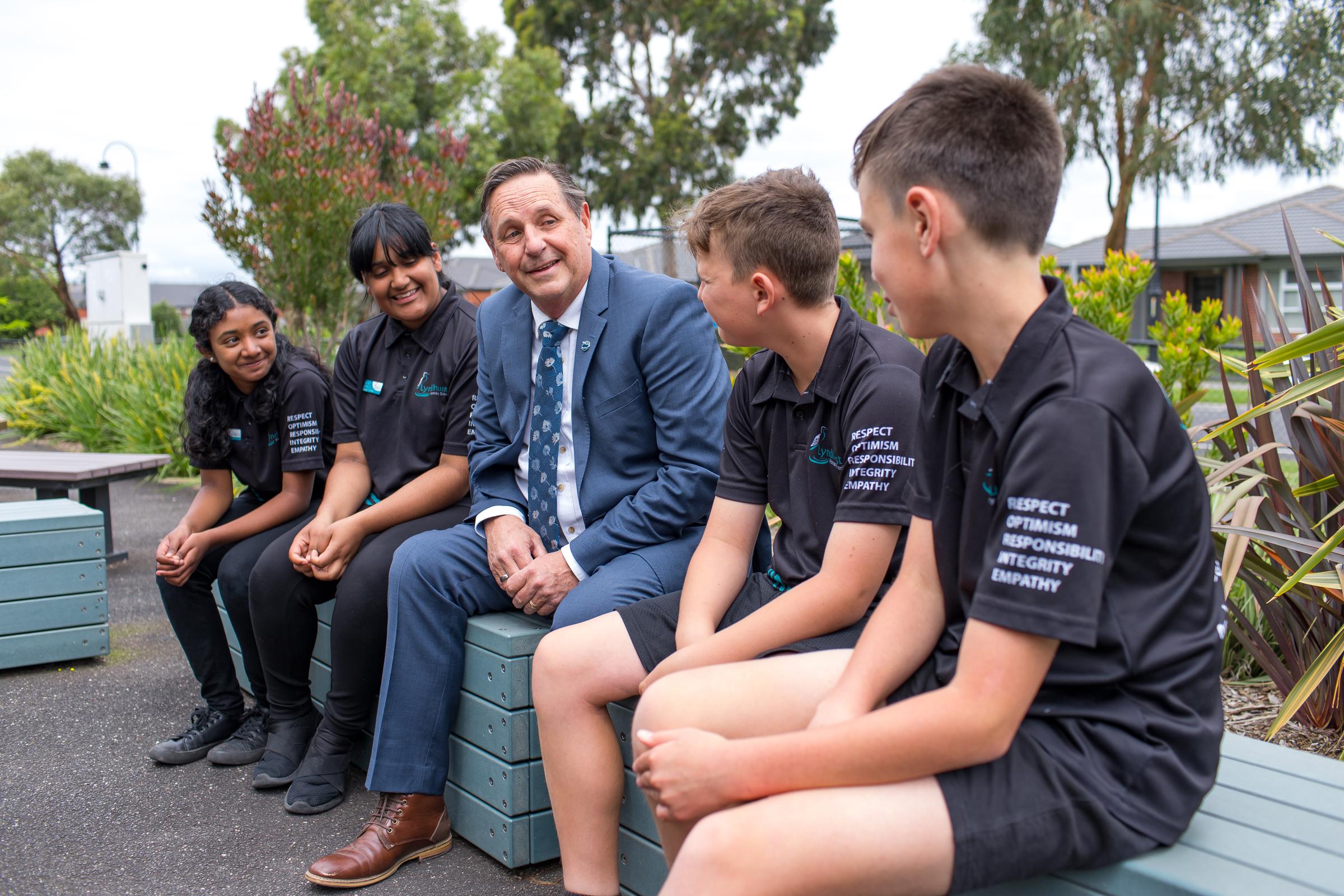Principal's Report

Principal’s Report 7th June
The term is rapidly coming to a close. It’s been such a wonderful start to winter with some of those classic crisp winter mornings moving into sunny, blue-sky winter days. As each week ticks by it brings me closer to the day I have to say goodbye to the wonderful Lyndhurst PS community.
The importance of play
Last newsletter, I included a piece from our @Lyndhurst collection, about our play-based Walker Learning in our years prep-2 classrooms. I hope it gave you some understanding of the complexity of the role of the teacher in a Walker Learning classroom, and the importance of play in the early development and learning of a child. Coincidentally, this week, I also came upon an article in The Age newspaper about this very subject. The article was entitled “Twenty minutes is all it takes: The sweet sport where kid’s boredom turns to play.”
The article begins, “There have never been more ways to keep our kids entertained. From weekend sports, to dance classes, to the screens in their hands, today’s children have no shortage of things to do. According to parenting educator Genevieve Muir, overscheduling our kids means they can miss out on the most valuable part of childhood play. “Kids are being run from one activity to the next. We’re doing a lot for them, and we’re depriving them of an opportunity to find their own fun.”
As parents, we have all heard the plaintive cry, “I’m bored. There’s nothing to do!” The usual response is to search in your mind for suggestions as to what your child might do to break the “boredom". However, as it states in the article and, as all the child development research would tell, this is exactly what NOT to do. Boredom is important in a child’s life because it encourages creativity and imagination. Just 20 minutes of boredom is enough to stimulate your child into drawing on their natural curiosity and creativity and find something to do for themselves. We don’t need to organise, schedule, choreograph and supervise every minute of a child’s day. Free, unstructured play is a vital part of a child’s development. It encourages imagination and creativity and it develops independence.
Have you ever seen an infant spend more time playing with the wrapping paper rather than the gift? That clearly shows that children don’t need complicated and overly structured toys to enjoy play. The simplest things, like the “loose items” play that we described in last week’s newsletter are all children need to be creative and cooperatively play.
So next time you hear that call, “I’m bored,” wait twenty minutes and just see what happens. The bored mind is a mind ready ripe for imagination and creativity! Give it a go!
Next in our @Lyndhurst series for parents
Attached here, is the next in our @Lyndhurst series on the importance of play. And parents, please don’t make the mistake of thinking that play is just for the little ones. Both structured and unstructured play are important for children throughout their early years.
